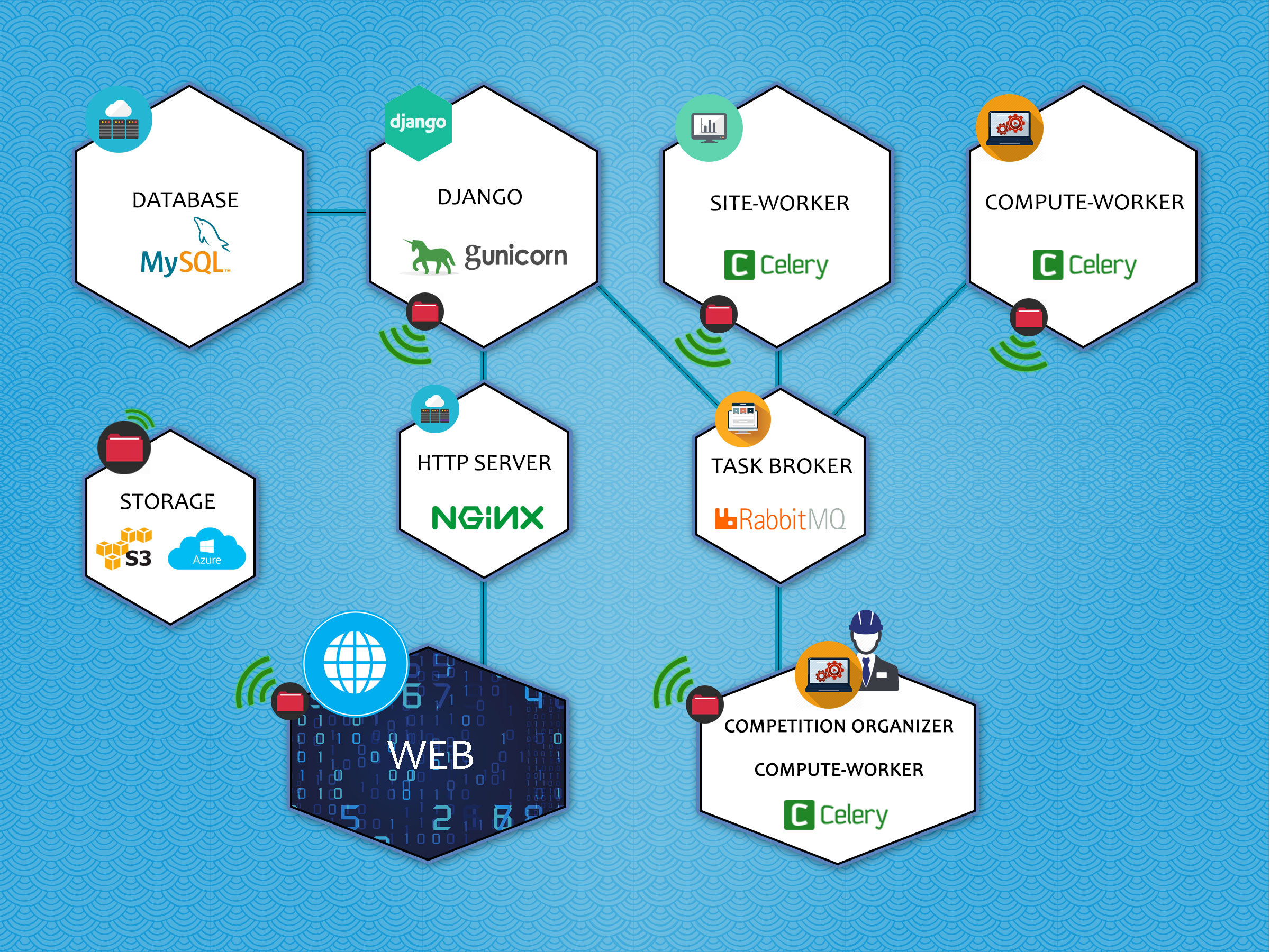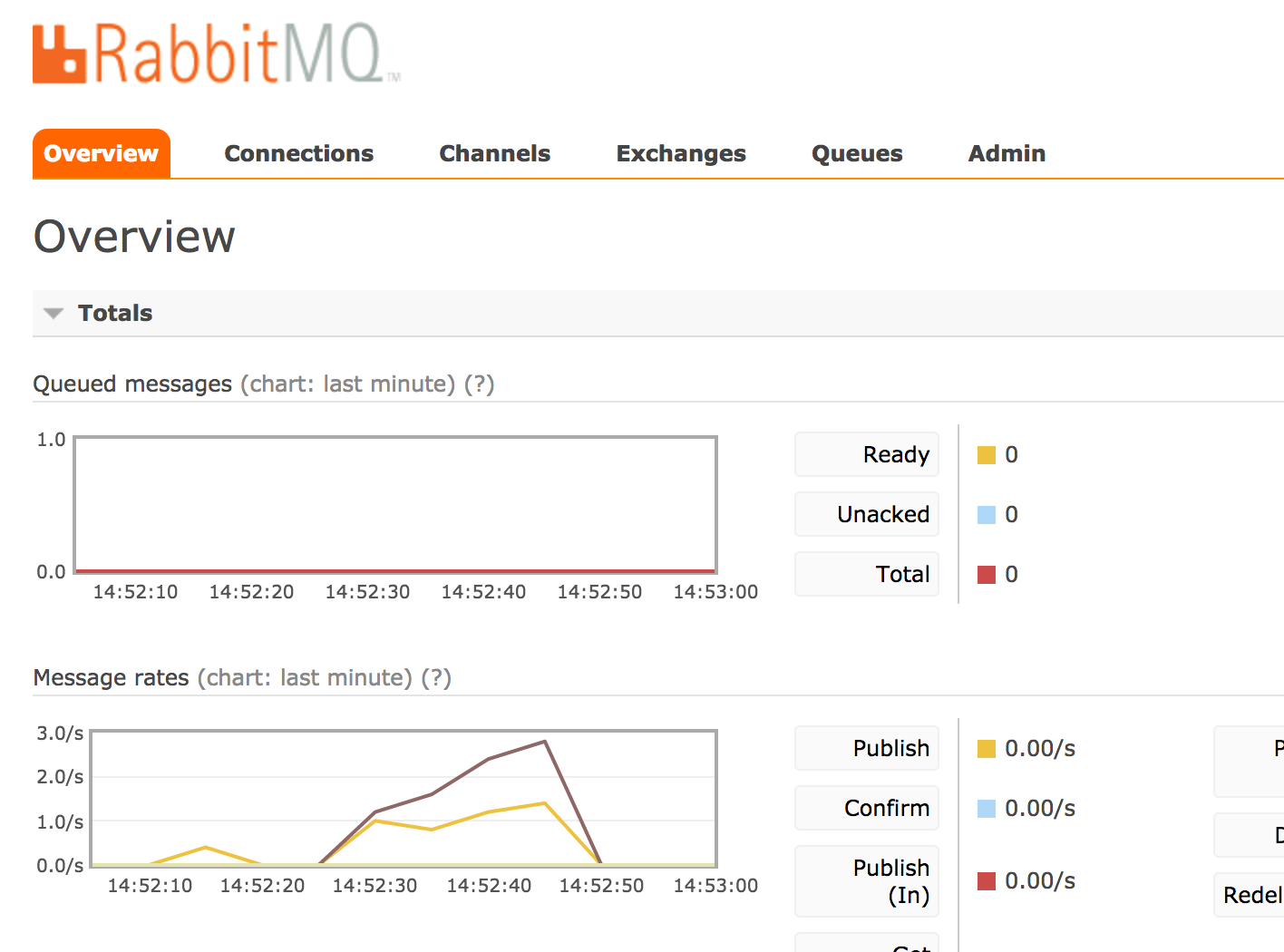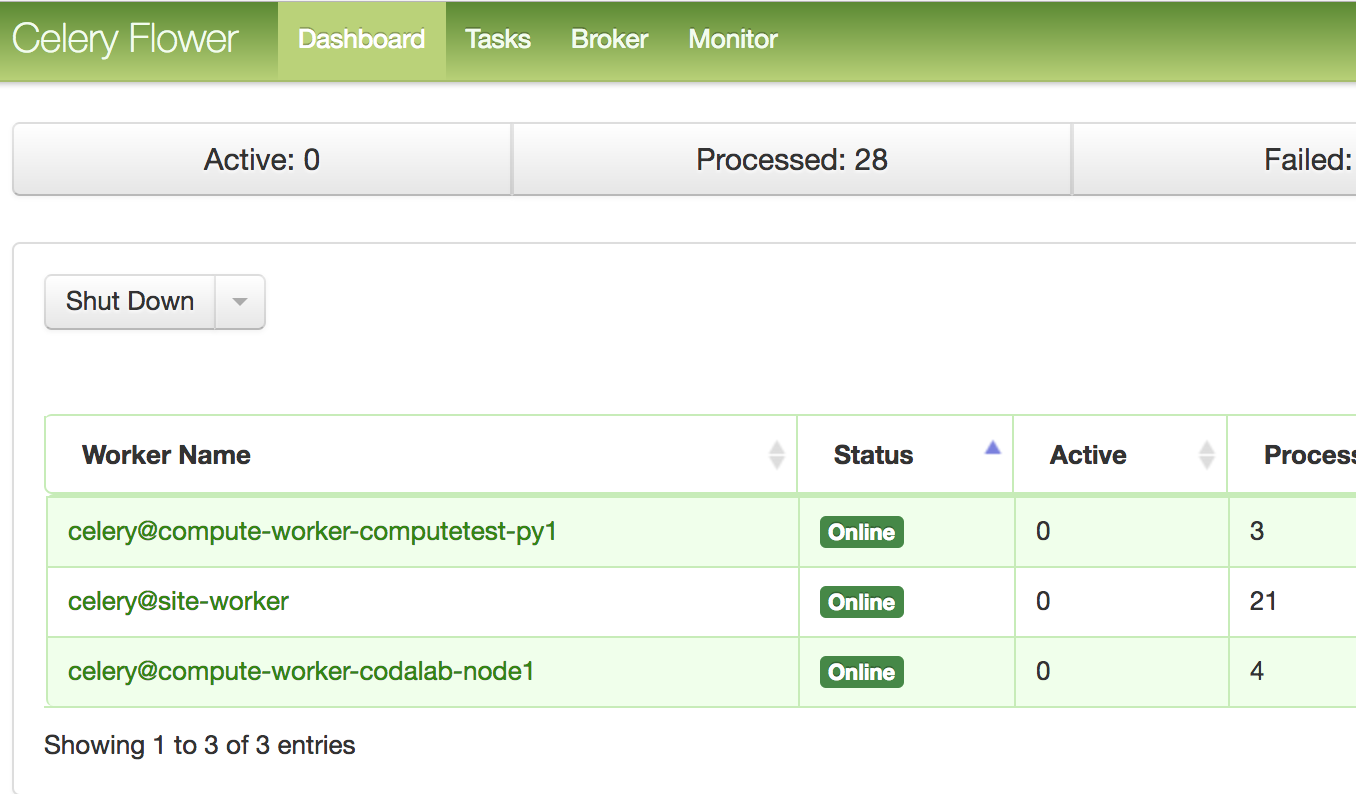Codalab Competitions architecture

Docker
We use docker to manage our local development and deploy our environments because it provides an increased level of reproducibility. It used to take hours to setup each piece of Codalab, but now it should be a bit more simple. It is still a bit tedious to have to setup Azure or S3 Storage, but this can be changed in the future.
Django
Django is the bread and butter of Codalab Competition's side. We use it to interact with our database, migrate the database state, and fire off our asynchronous tasks.
MySQL
Our data storage. Not the ideal choice, but it's what we're currently using to store data.
RabbitMQ
We use RabbitMQ as our task message broker. It is simple, resilient, comes with nice management tools to assist with debugging:
 — RabbitMQ Management
— RabbitMQ Management
 — Flower
— Flower
Celery
This is our task queue where we execute long running tasks, like:
- Creating a competition
- Evaluating a submission
- Sending mass emails
- Re-running all submissions in a phase
- Schedule tasks
Also, by decoupling the worker from the project as much as we have, we can allow competition organizers to run their own celery workers to consume submissions. They don't need access to storage keys like before, because we pass around signed urls with access to read/write.
Celery and RabbitMQ basically replaced what the Service Bus provided in our project a few months ago (as of March 2017).
Nginx
A simple HTTP server to handle web requests. We can use this to cache static pages and handle huge influxes of traffic if we need to.
Storage
All competitions, submissions, input data, submission results, logos, etc. are stored remotely either on Amazon S3 or Microsoft Azure Storage.
Data is typically passed around via URLs with signatures instead of streaming the actual data. This makes it more simple for a competition organizer to, for example, download competition data without having to share Codalab's storage keys.